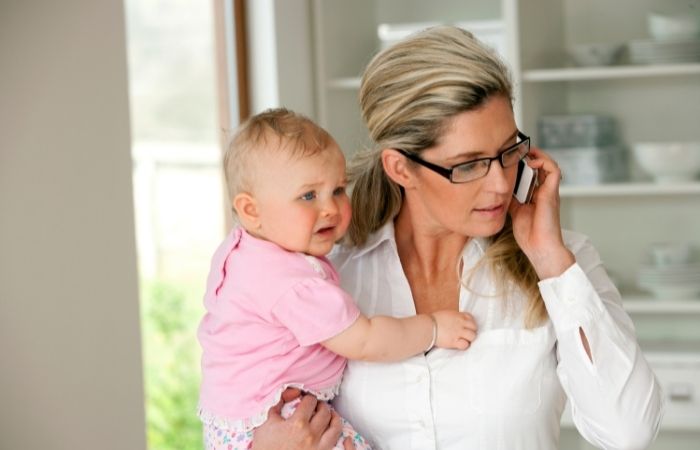
For any parent dealing with an unsettled baby may be extremely hard and frustrating. Unsettled babies can make adjusting to parenthood extremely difficult, especially if you are still forming a bond with your child and it can cause significant levels of weariness that affect your capacity to perform properly. The following tips may help you develop strategies for calming your unsettled baby.
What does the term “unsettled baby” usually refer to?
A sobbing, difficult-to-soothe baby who wakes frequently during the night, wakes after brief periods of sleep, and/or is difficult to comfort are all signs of an unsettled baby. Babies have their own distinct personalities, and much like people, some may be laid-back and relaxed, while others will be highly sensitive or demanding. Either way, it can pose additional challenges for them and you.
Symptoms and Causes
There are many reasons why your baby could be uncomfortable, which can cause them to fuss at specific times of the day.
Baby unsettled during the day
A baby that is constantly fussing during the day and not sleeping or sleeping for very short periods of time and is difficult or slow to console may be due to colic, diaper rash, teething, thrush, a food sensitivity that causes tummy pain, oversupply of milk or insufficient milk production, or overstimulation.
Baby unsettled at night
A baby that feeds at night for a few minutes briefly falls asleep and then wakes up crying, or they will not sleep or feed and just cry can be exhausting to deal with at night. Fussy evenings, also known as the witching hour, are very common and normally caused by developmental changes during the first few weeks and months of life.
As babies grow, they become more aware of their surroundings and their own body, thus being overtired/missing naps or overstimulated, all of which can lead to a difficult evening.
Unsettled baby after feeding
One of the most common reasons for a baby to be unsettled after feeding is wind. It could be a build-up of air swallowed while feeding. Bottle-fed babies, in particular, are known to be more prone to ingesting a lot of air during a meal. This might cause gas to accumulate, which makes them uncomfortable. It might also indicate that your baby is still hungry or is getting too much milk too quickly if they are agitated or unhappy during and after feeding.
Coping with an unsettled baby at home
It is easier said than done to stay calm when your baby is screaming especially when tensions and emotions are strong. The following suggestions may assist you in developing calming tactics for your unsettled baby.
Basic needs
Try nursing the baby and then gently burp them. e and burp your baby. Try holding your baby in your arms and on their left side to aid digestion. Check that the baby is dressed comfortably, has a clean diaper, and is not running a fever.
Be Comforting
Hold your baby or try carrying the infant in a baby in a sling. Gently rub its back or apply a baby massage with safe, soothing baby oil.
Minimize stimulation
Switch off any loud noises such as the TV or radio, keep the lights dim, softly sing a lullaby, or play soft soothing music.
Change of pace/environment
Nurse the baby while in motion (for example, when walking around or rocking), or give the baby a bath. You can also try taking the infant outside for a walk in the stroller or go for a car ride. Some babies respond well to a gentle vibration, so placing the child in a baby carrier on top of the dryer may calm them. Remember never to leave your child unattended.
Limit Caffeine if Breastfeeding
Even a small amount of caffeine can be passed on to your baby through breast milk. After drinking milk containing trace amounts of caffeine, sensitive newborns may become irritable or hyper.
Stay Calm
Your baby will be able to detect if you are stressed and may seem more unsettled if the mother or home environment is anxious and tense. Even the most level-headed person can be rattled by a crying baby, so it is also important to remain calm and not shake the baby out of frustration.
When to see a doctor if your baby is unsettled?
A baby that is fussy and fretful, with continuous bouts of weeping, could be sick or in discomfort. Fussiness can indicate the presence of gas, stomach pain, earache, a viral or bacterial infection, or something more serious.
If your infant is fussy after feedings, arches their back, spits, vomits excessively, or is not gaining weight, see a doctor. The most telling sign that you need to see a doctor is if your infant has a fever of more than 100.4 degrees Fahrenheit (38 degrees Celsius) and is under the age of two months.
Hey welcome to my blog . I am a modern women who love to share any tips on lifestyle, health, travel. Hope you join me in this journey!

Speak Your Mind